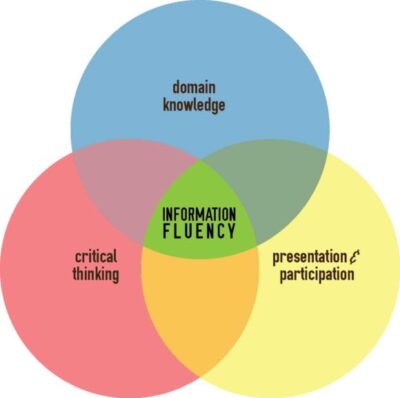What is the precise meaning of fluency in English?
What is the concept of fluency in English? One of the most used vocabularies for English learners is the word fluency. If you are a language learner they may, of course, have different perceptions of it. It is generally understood to mean fluency. The term is more commonly used in English, meaning you need to speak fluently during the conversation. Now our question is, what is the concept of fluency in English? What level of mentality does the word mean? Is fluency fast speaking?
Possible meanings of the word “fluency”
 In existing dictionaries, the word fluency has been used for conversational meanings, and it has various meanings similar to fluency and so on. These meanings are also different in Farsi; for example, fluency means beautiful vocabulary, and fluency is related to the meaning part, meaning words have clear meanings. The existence of these different meanings for the word fluency even in English allows us to examine its exact meaning.
In existing dictionaries, the word fluency has been used for conversational meanings, and it has various meanings similar to fluency and so on. These meanings are also different in Farsi; for example, fluency means beautiful vocabulary, and fluency is related to the meaning part, meaning words have clear meanings. The existence of these different meanings for the word fluency even in English allows us to examine its exact meaning.
A: The speed of reading or the speed of the conversation in short-term
One of the common meanings of the word fluency is advertising. That is to say, “Speak English fluently with us for a short while”.
This is especially true for transient and shallow courses, such as people wanting to talk about a specific topic at a conference. It is recommended to read the article “Is there fluency in conversations between English speakers?“. These people can gain this level of fluency and gain fluency by relying on vocabulary related to the same subject. Candidates looking for genuine fluency will certainly not like this type of fluency.
B: Having a fluent expression like English speakers
This type of fluency means that a learner intends to speak fluently so that when he speaks to an Englishman, he thinks English is his native language. This sense of fluency comes from people who have a great deal of perseverance and care about the accent. It must, of course, provide the requisites, one of which is to be closely related to the linguistic, cultural and social content of the target country. For the majority of learners, the true meaning of fluency seems to be meaningful, meaning that most of them intend to reach this level of fluency, which is the exact meaning that is derived from fluency.
You may have seen people speaking Farsi in a beautiful and, of course, a book among Persian speakers. Expressing people like poets, authors of novels or stories falls into this level of meaning.
The same is true in English, meaning that there are people who want to reach a level of fluency that is wordless. These people can convey and convey different meanings and aesthetics with a feeling. Reaching this level of fluency is available to anyone who reads English novels, learns their literary terms, and provides information based on the amount of information they have on a subject.
D: The difference between speaking fast and fluency

Some have the illusion that they may or may not have the illusion that if they speak fast or go to learn someone who speaks fast they have reached the goal of the fast conversation. they have found. From the meanings of fluency, we mentioned the style of conversation. Fluency is very different from speaking English fast. The English language is full of idioms and arrays that have evolved over the centuries because of its dynamism. These language components each have a negative, positive or neutral connotation feeling and charge. On the other hand, English has rhythm and intonation rhythm. This, in turn, has a negative effect on the semantic part of the word that results from the tone. Significantly, speakers such as Brian Tracy account for 2 percent of the message transfer operations.
E: The sharp contradiction between fluency and fast speaking
On the other hand, speaking harshly with the structure and purpose of the language, especially English, is inconsistent. The main purpose of a conversation is to exchange messages. The parties are transferring the message. Talking too fast hurts the message structure. Above is the dynamics of English. Another prediction and discussion in English is enunciation, “clarity of speech”. In another article, we have discussed in detail the enunciation. So I am merely expressing the point that rigor is in stark contrast to the dynamic nature of English.
It is good to know that the language was so dynamic that during the course of its development it abandoned other languages, such as Latin, which was once the first language of science. Even now, this language is exerting its influence over other languages. Even Mandarin Chinese, which has many speakers, has been affected by English today. Today, the number of Chinese who are learning English is several tens of times the English speakers who are learning Chinese.
What was said in this article:
Despite the different meanings for the word fluency in English, we actually come across different levels of mental expression. Fluency can be targeted to any of the learners in one of the three levels we are considering, depending on the community. What is important is that we are able to distinguish a fluent conversation from the hastiness of the show. The transmission of emotions within the message is just as important as the words used at times.
For further studies:
1- Ways to Prevent Mental English Translation


 فارسی
فارسی
